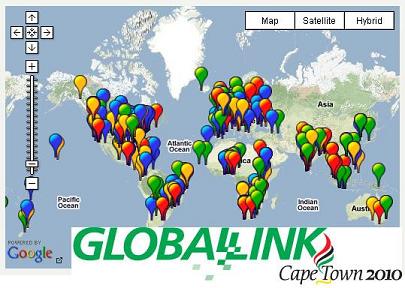I live in Kansas, where technology isn’t at the speed of light like the rest of the world. In the rural part where I am, until October there was only one local provider with old phone models and old phone plans. October 1, AT&T came into the rural parts of the Midwest bringing with it better choices of technology and better phone plans. However, people are resistant. AT&T should be very careful here, play their hand right because Midwest people are not like rough New York people used to the hustle and bustle of sales and deals. This is a place of slower moving people, business and while I see it changing, here are some things that can make the transition better.

First, AT&T bought out a local company which was a CDMA-based cellular provider – AT&T is a GSM carrier. While that means something to me and probably to the reader, it means very little to 90% of the population here. People in my town have been used to buying the simple phone, having it for 2 years on contract and then switching. The concept of putting a SIM card in a different phone every week or every day is foreign and mostly unnecessary to many of the people here.
Because of the move to a different cellular technology, AT&T is forcing upgrades on phones and plans for people who are/were happy with the phones they currently have. Granted, there’s a technical reason why they cannot keep their old phones, but changing their plans by force is not the way to keep customers.
I believe GSM is the way to go, who should be locked into one phone for one year, two years or however long the provider wants? This should not be the main concern with this target of customers. As with any change of service, people are looking for AT&T not just to keep their service on, but to woo them towards something better that they may offer. Locals are used to Unicel and 10 years of service and support – that’s a long time in business relationship terms – and so change has to come with some kind of incentive for existing customers.
The thing that AT&T is doing right is bringing the newer phones into rural Midwest. I finally have been able to attain an iPhone and be able to have service out here. Yay! There is a catch. I don’t have 3G yet. I believe it is coming. Having a national GSM company out here is first priority, then 3G will follow. And not to sound like an Apple fan girl, AT&T is bringing Android 2.2 out here as well, which is great also because there will not just be a better network, but more choices for mobile devices which people can use on it.
As with many places, I’ve noticed there is a younger set of population in rural America that wants new technology, and has been craving it – yet availability and education towards newer technologies has been lacking. I have been bringing in my handsets for three years now and asked constantly, “what is that?” In many respects, I have been an evangelist of Nokia, Apple, and HTC smartphones for three years in a place that hasn’t seen anything like them. Now that a national carrier will sell them here, there’s a chance that a better understanding how these phones can help improve business practices and personal lives can take root.
Which takes me to back to my first point – while we are a slower moving part of the US, once we understand how something can improve our lives, we take it and run with it. I see the rural parts of Midwest coming into technology quickly – as long as AT&T doesn’t alienate the core customer base that it obtained. What I’d like to see AT&T do for their base customers, and for new customers is this: help rural America see how much a smart phone can help smooth out daily operations of lives. My father still has business cards from 1975 of people who are no longer in business, but the family has remained in contact. How can that be idea transferred to mobile? My smart phone can hold thousands of contacts, even if I never use them, with a search function by name so I don’t have to scroll for hours trying to find Sally Mae’s phone number. That is useful to people. Even if they don’t use the numbers often, they want to know that they can, and a phone that can only hold 100 hundred numbers is limiting. Touting a phone that can be a phone book, calendar, and hold pictures is something new to people here. It seems arbitrary to some city people, I know. I’ve had phones that have done that for at least 5 years. Yet this is a new way of life coming out to Midwest America and having people use it in a way that enhances life will be a fun transition to watch, and if handled correctly, will change lives for the better all around.
Come back next week when I discuss the ways the new technology coming in will affect business practices, church functions and community events.
Editor Note: Mobility in the Midwest is a weekly series that will be looking at some of the mobile technology challenges presented in the Midwest US, and what the transition to mobile and connected communications means towards these communities.
 Stories like this I like. CNN Labs recently interviewed Nigel Waller of Movirtu on their premise of creating and releasing a $5 mobile phone that is activated for only “10 or 20 cents”.
Stories like this I like. CNN Labs recently interviewed Nigel Waller of Movirtu on their premise of creating and releasing a $5 mobile phone that is activated for only “10 or 20 cents”. There are two parts of Kansas: the east and the west. The east in more populated and therefore has met and embraced the 21st Century. The west part of Kansas, is different. It is easy to suggest many of the things I have experienced personally in a more rapidly moving community, yet the reality is that those are just not going to happen yet. I have been to churches that have websites with services available on
There are two parts of Kansas: the east and the west. The east in more populated and therefore has met and embraced the 21st Century. The west part of Kansas, is different. It is easy to suggest many of the things I have experienced personally in a more rapidly moving community, yet the reality is that those are just not going to happen yet. I have been to churches that have websites with services available on 


 Hopefully, you are aware and have been paying attention to the sessions and active conversations surrounding the
Hopefully, you are aware and have been paying attention to the sessions and active conversations surrounding the